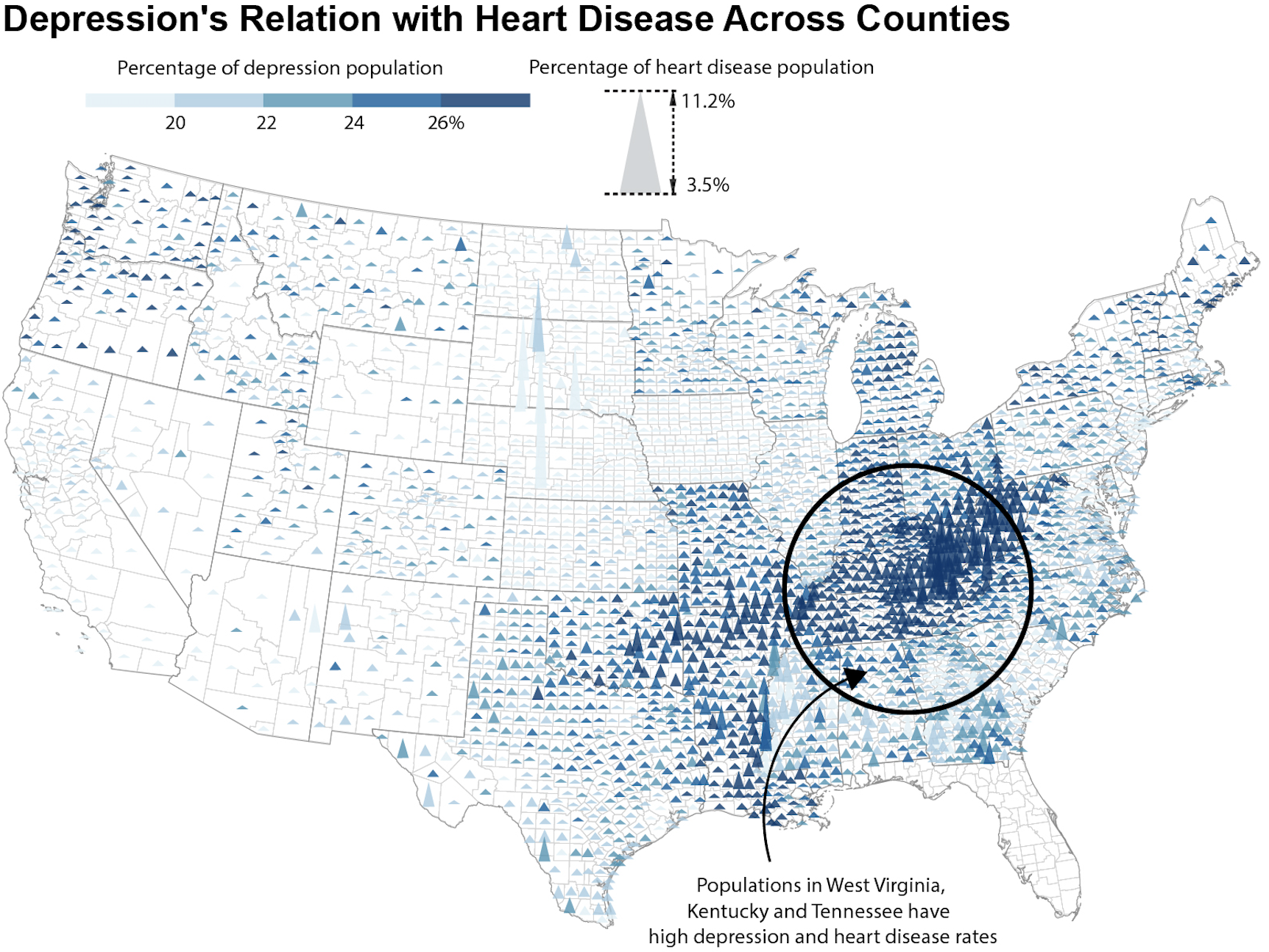What Chronic Diseases and Toxic Habits Are Linked to Depression
Lily Lin, once a top-notch student and everyone’s favorite in high school, has been grappling with depression for the past eight years. The vibrant and popular girl, who is my best high school friend, took a drastic turn towards the end of school days. She started distancing herself, making frequent hospital visits, and constantly missing our gatherings despite her earnest attempts to keep her promises when depression hit. Lily’s journey through depression reveals a stark contrast to the bright personality we all remember. Since then, I keep asking myself: What triggered this change? Are there specific habits or conditions that lead to depression? And how exactly does depression impact a person’s body?
Significant correlations have been identified between factors such as an unhealthy diet, smoking, and high alcohol consumption with the occurrence of depression. These lifestyle elements have also demonstrated associations with various physical illnesses. For example, patients with depression are more likely to suffer from diseases such as obesity and diabetes than non-depressed patients, according to a recent journal on ScienceDirect, a database of scientific and medical publications.
To analyze the link between depression and other diseases and habits, I collected data on depression rates in each county in the US along with the rate of other health outcomes in 2021, to investigate the correlation between depression and other factors.

Among all the factors I looked into, including six illnesses (asthma, stroke, heart disease, obesity, diabetes and cancer) and three habits (smoking, lack of sleep and poverty), rate of asthma, smoking and heart disease are strongly linked to rate of depression.
According to Anamara Ritt-Olson, an associate professor in residence of health, society and behavior at UC Irvine, the reasons behind the connection between depression and smoking and heart disease are straightforward. On the other hand, the link between depression and asthma may have other environmental factors.

While the cause-and-effect relationship between depression and other illnesses is not evident, meaning it is not clear which one leads to the other, Ritt-Olson said that research has shown if a patient undergoes any kind of major heart surgery, within six months, their risk of a major depressive episode increases.
Changing the circulatory system and the heart through medical procedures appears to distinctly impact factors leading to depression. The result highlights a strong connection between the circulatory system and depression, and this explains why the counties with higher heart disease rate also have a higher depression rate. The rates of depression and heart disease are significantly higher in West Virginia, Kentucky and Tennessee, according to CDC data.

A similar pattern emerges when it comes to smoking rates. Ritt-Olson described tobacco as a “terrible trap.” Drawing from her research on individuals dealing with depression, she noticed a tendency among them to seek substances that offer a sense of uplift. Tobacco and alcohol are the two most accessible choices. “Cigarettes made you feel better and feel more energetic as soon as you vaped,” Ritt-Olson explained, “but they wore off quickly, and you felt even worse than before, becoming more depressed.” The smoking rate is also higher in West Virginia, Kentucky and Tennessee, sharing the same trend with depression.

Among all the factors, asthma shows the strongest link to depression. Similar to heart disease and smoking rate, asthma rates remain high in West Virginia, Kentucky and Tennessee. What makes it different is that asthma rates are also high in Washington and Oregon. This aligns more closely with the depression rate in these regions.
Ritt-Olson suggested that asthma might not be directly associated with depression; she believed there were some environmental factors behind the link. She said that the thriving coal industry could be a contributing factor to the high asthma rates in West Virginia, Kentucky, and Tennessee. Also, these regions also have lower insurance coverage, potentially leaving the populations more vulnerable to health issues due to limited access to medical resources.
Several studies have suggested a potential connection between depression and obesity or diabetes. However, in this analysis focusing on the US counties, the observed correlation appears to be weak. Chronic illness, toxic lifestyle and depression often go hand in hand. This analysis provides real-life evidence on the factors associated with depression in the US.
Methodology: https://github.com/haileywang1998/J233-final-project-Hailey-Wang-